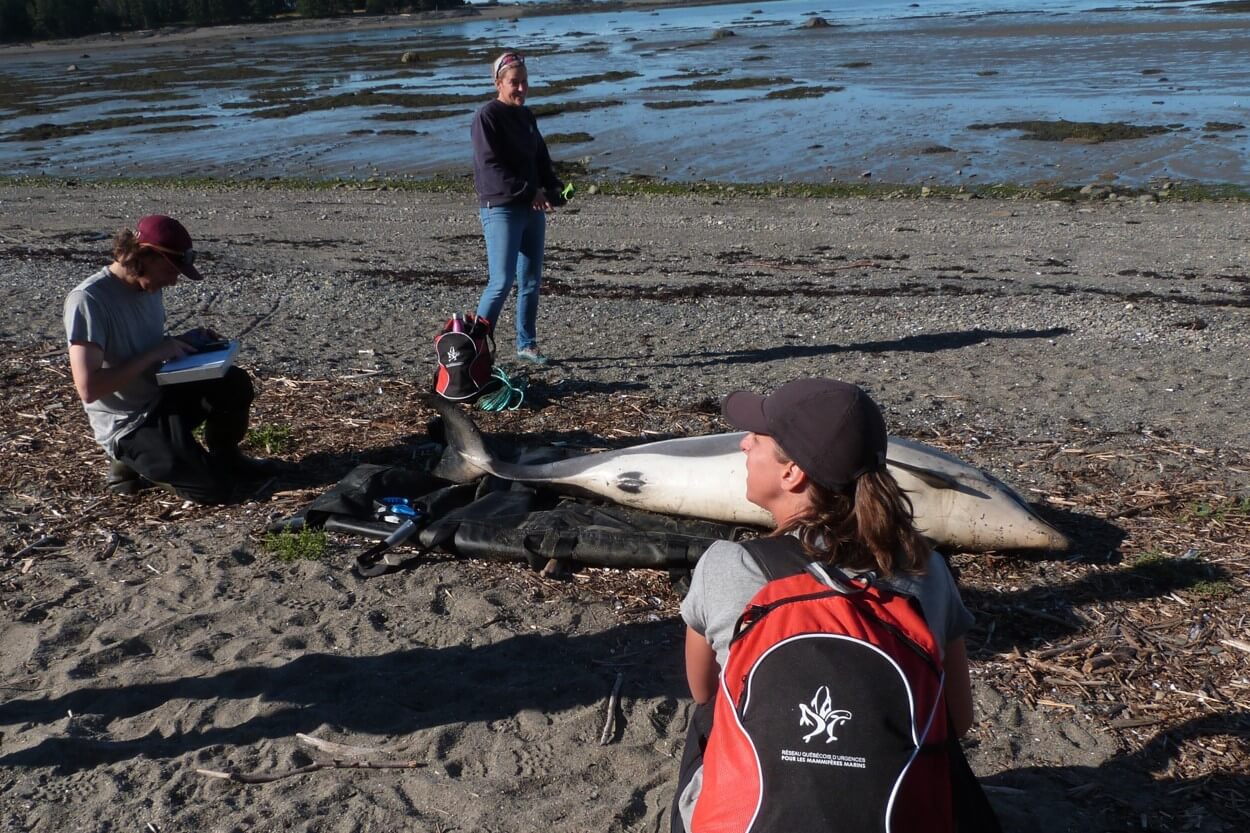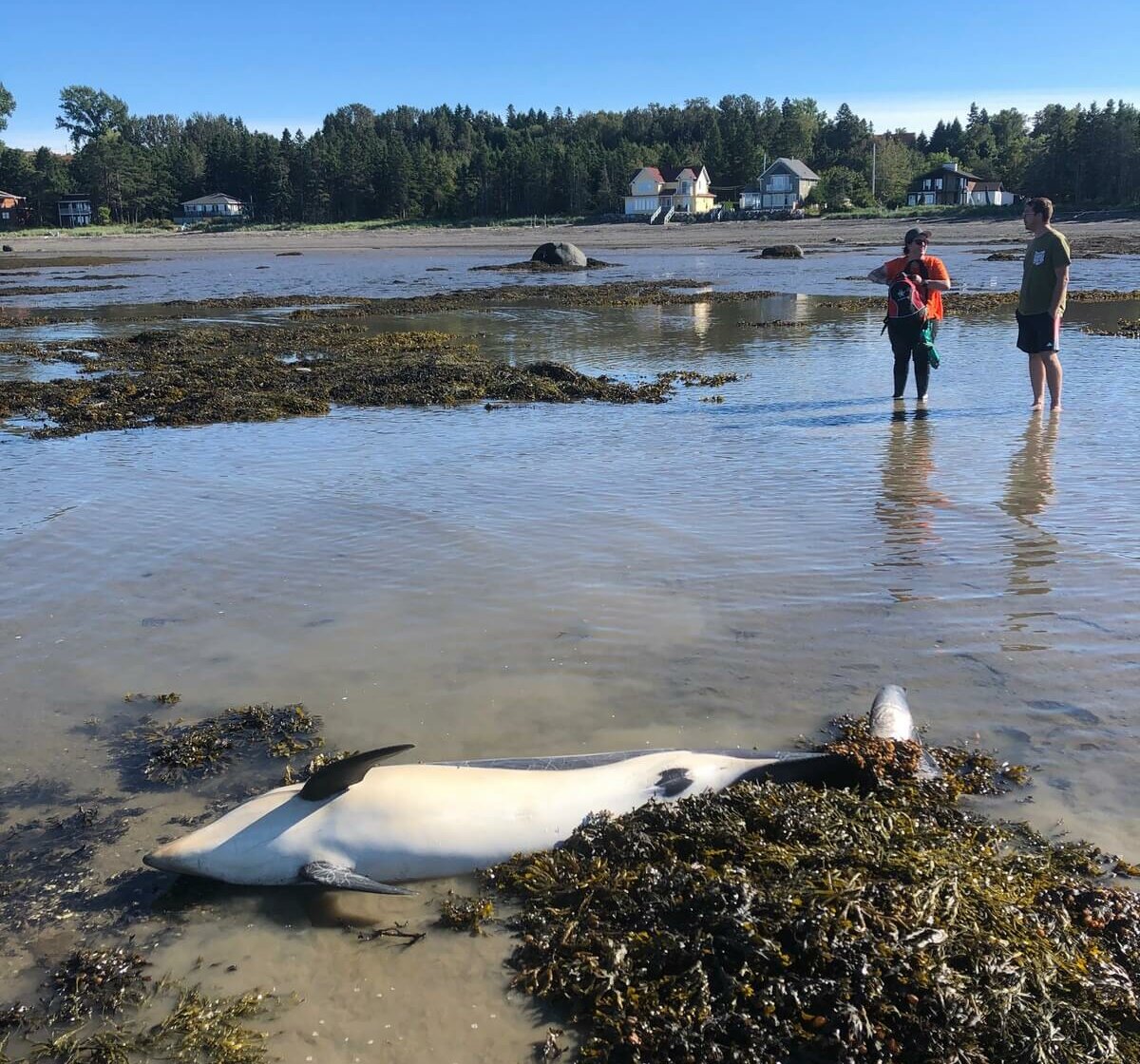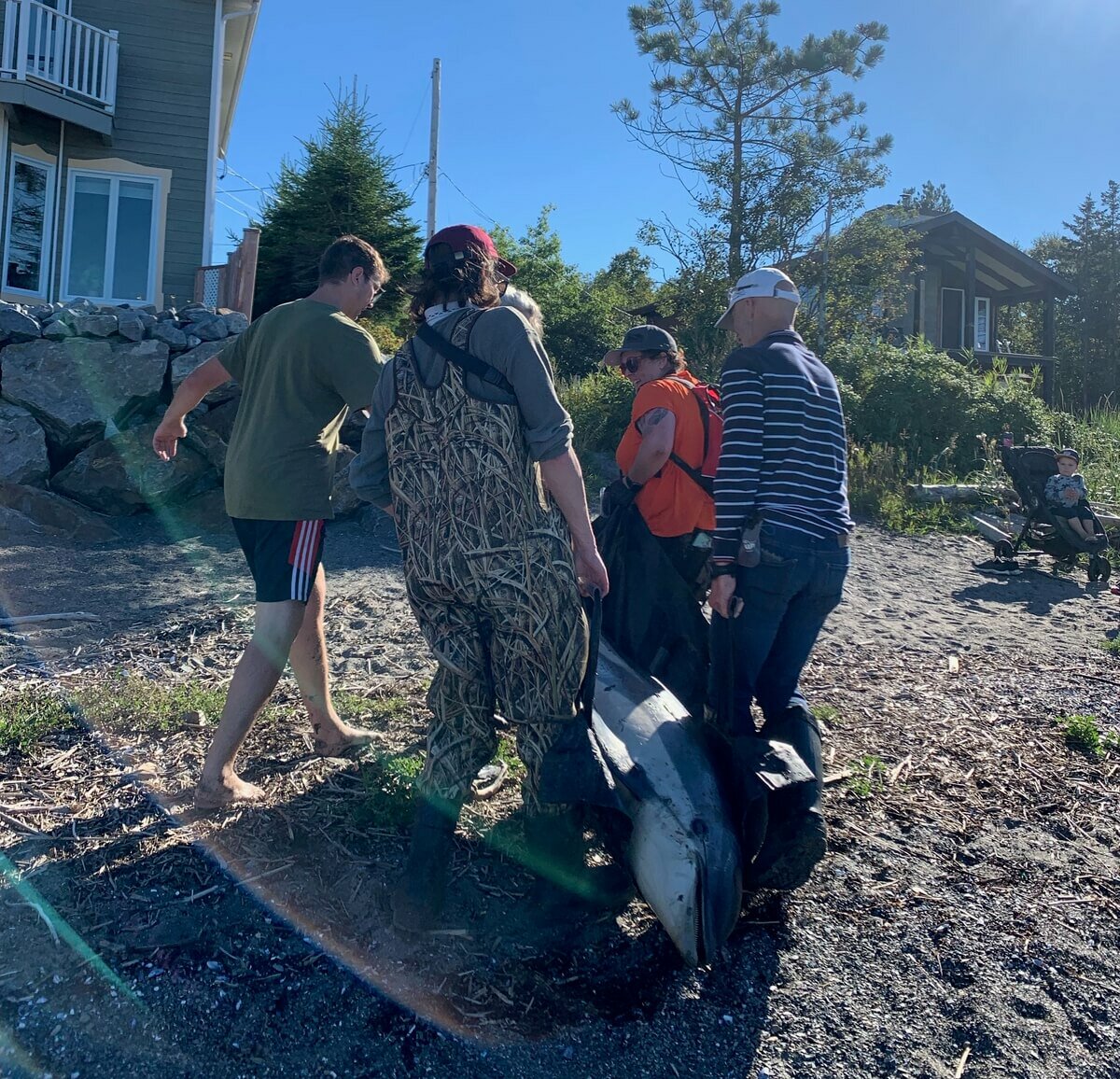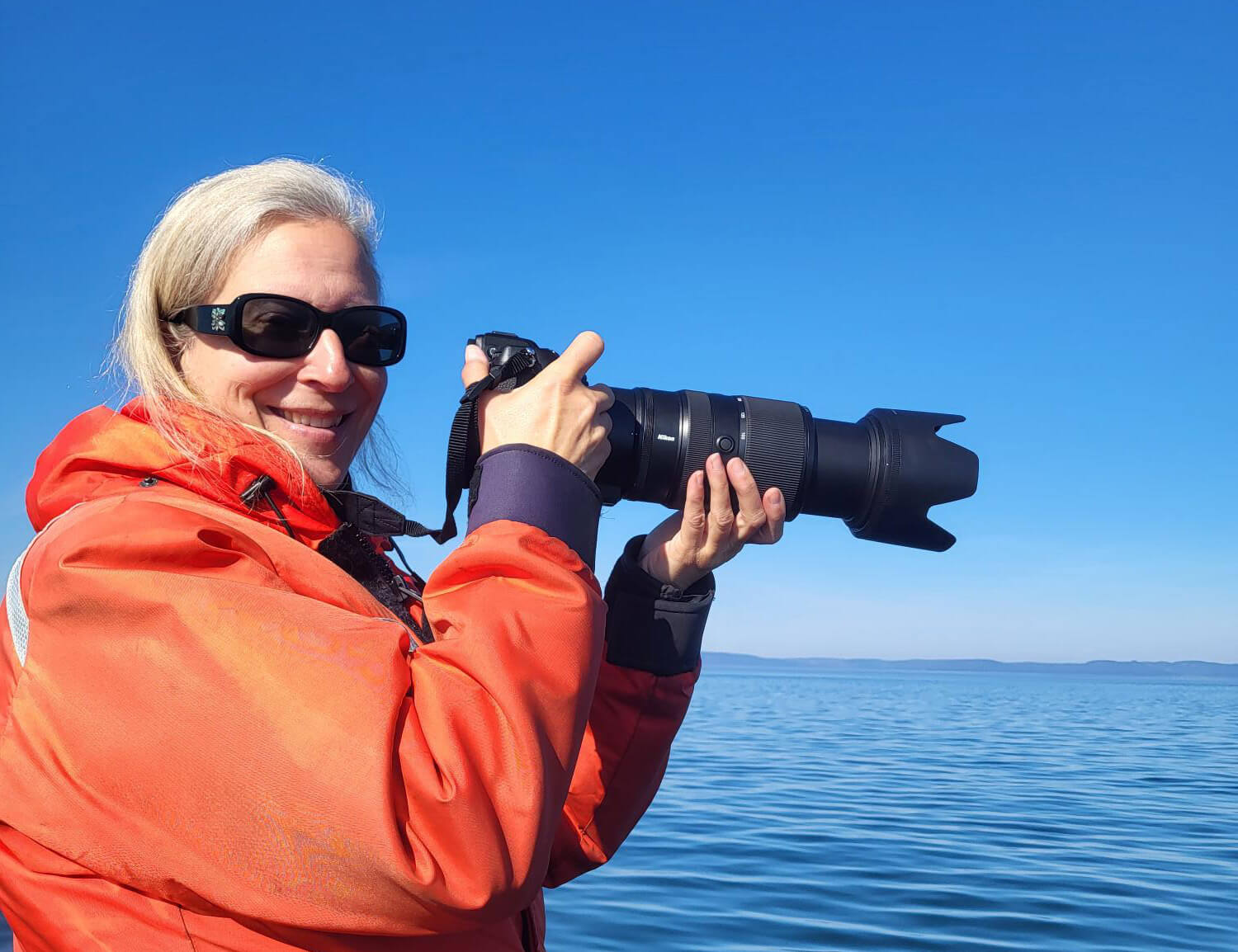In the early afternoon of Monday, September 5, the Quebec Marine Mammal Emergency Response Network call centre receives a report concerning an Atlantic white-sided dolphin carcass floating near the mouth of the Hâtée River between Rimouski and Le Bic. I was then asked to prepare my gear and head to the site; in the meantime the centre reached out to several Network volunteers who are essential for carrying out such interventions. This is the second dolphin recovered by the Network this year. In fact, a white-beaked dolphin was found stranded on a beach in Blanc-Sablon last July. These two dolphin species are regular visitors to the Gulf, especially in the fall, while white-sided dolphins occasionally venture as far upriver as the St. Lawrence Estuary.
Upon my arrival, I learn that the most direct access to the site is through a campground, where only paying visitors are generally granted access to the beach. While the call centre is trying to find a way to access the site, I find an observation point from which I can scan the bay with my binoculars; I quickly manage to locate the dolphin carcass thanks to the long pectoral fin sticking out the water near the low tide line. A few minutes later, the owner of the campsite gives us permission to access the beach closest to where the dolphin is.
As the tide is about to rise again, I quickly put on my boots and make my way toward the carcass together with the first volunteer to arrive on site. A vast tidal flat separates us from the carcass and our first steps are the most arduous; our feet sink deep into the mud with every step, which even causes our volunteer to lose her balance and fall onto the soft ground at the start of our trek! Fortunately, a local resident points us to an inconspicuous sandbar that might make it easier to reach our destination. Thanks to this precious tip, we finally reach the carcass, which we drag through the water to the edge of the flats a few metres away. Accompanied by two other good Samaritans who have since joined our small team, we place the carcass on a stretcher, which allows us to carry the dolphin to the beach without too much trouble despite the animal being as heavy as it was. A dolphin this size can weigh between 150 and 200 kg, making it a bit like carrying a refrigerator (only softer) at arm’s length in the sand, which is no easy task!
Once the dolphin is on the beach, two other volunteers arrive on site and help us document the carcass. We take the time to measure different parts of the cetacean’s body and inspect it for lesions that might provide clues regarding the cause of mortality. To learn more about how the animal died, we will have to transport it to Université de Montréal’s Faculty of Veterinary Medicine in Saint-Hyacinthe, where a necropsy will be performed. To keep the animal in good condition until it reaches Saint-Hyacinthe, we store it in a freezer at one of our warehouses on the south shore. Thanks to the incredible combined strength of our small team, we manage to hoist the animal into the bed of the vehicle. The Network volunteers then accompany me to the warehouse to transfer the dolphin to the freezer, which saves me a lot of time and energy!
Without the precious contributions of our dedicated volunteers, this type of operation would be extremely difficult to carry out. It is in these types of situations that we feel particularly lucky to be able to count on motivated volunteers throughout the province!
By Vincent Giroux







